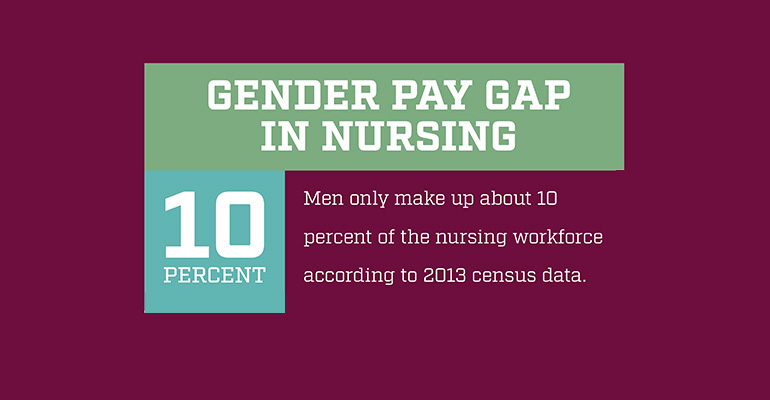It is no secret that women have typically been at a disadvantage compared to men when it comes to average pay in most professions.
A new study published in the Journal of the American Medical Association shows that this common trend has made its way into the field of nursing, a profession in which men only make up about 10 percent of the workforce, according to 2013 census data.
Study author and professor at the University of California Ulrike Muench said that men make an average of about $5,000 more than women each year, which adds up to more than $150,000 over a long career. According to Muench, this pay gap has not changed in more than 20 years.
“We were somewhat surprised to see this gap over the years, given the female-dominated profession where you would think women may have caught up with men,” Muench said.
While the average salaries for both male and female nurses have increased since 1988, the pay gap has remained the same.
The actual theorized reasons behind the study’s pay gap conclusions are varied. Peter McMenamin, a health economist at the American Nurses Association said he is not convinced the gap is actually as large as the study suggests.

He said that, for example, the way in which women greatly outnumber men in the study could result in a much more precise collection of data for women.
However, nursing students at The University of Southern Mississippi have their own ideas of why such a wage gap exists in the field.
Junior nursing major Travis Rodgers said while it is unfortunate that a wage gap exists, there are some logical and justifiable reasons that men are paid more.
“One reason that is applicable to almost any profession is that women may take maternity leave,” Rodgers said. “Women take off extensive amounts of time to take care of their children while men do not have this problem.”
Rodgers said that because of this time away from work, men are ultimately able to gain more experience.
“The medical field is always changing, and missing out on over a half of a year or more might affect their performance. This gives men more experience because they are able to work constantly,” Rogers said.
Sophomore nursing major Emily Whigham echoed Rodgers’ opinion.
“In a way, men are seen as higher value in the nursing field because women typically have to take more time off,” Whigham said. “While it is unfortunate, it makes sense.”
Rodgers also added there are other logical reasons that could possibly attribute to higher average salaries for men.
“I think the increase in pay is an incentive to get more males in the field since they are necessary for the functioning of the hospital,” Rodgers said. “Males play a huge role when dealing with male patients, lifting overweight individuals and dealing with potentially harmful patients.”































